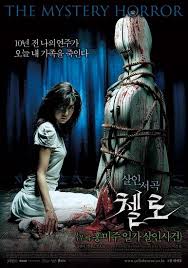In the February issue of The Strad, I reflect on the plight of cello soloists whose agents try to make them play the same three concertos, year in, year out, regardless of creative atrophy.
There’s the Dvorak, the Schumann, the Elgar and if you’re
lucky, from time to time, the first Shostakovich or the sticky-sweet
Saint-Saens.
Of course, there’s also chamber music – but that’s not a
living. A patient agent will sit down with our Curtis or Academy award winner
and explain the facts of life. A concerto is a thirty-k date, fifty if you play
the yo-yo (did I overhear that right? maybe she said, play like Yo Yo).
Doing the Judas Mac variations or the Kodaly sonata at the Weill or the Wigmore
is three-k if you’re lucky, and don’t expect a limo.
So what’s to be done? Three or four young cellists I know are trying to break the mould, but what can be done to support them? All ideas and suggestions gratefully received.

In the February issue of The Strad, I reflect on the plight of cello soloists whose agents try to make them play the same three concertos, year in, year out, regardless of creative atrophy.
There’s the Dvorak, the Schumann, the Elgar and if you’re
lucky, from time to time, the first Shostakovich or the sticky-sweet
Saint-Saens.
Of course, there’s also chamber music – but that’s not a
living. A patient agent will sit down with our Curtis or Academy award winner
and explain the facts of life. A concerto is a thirty-k date, fifty if you play
the yo-yo (did I overhear that right? maybe she said, play like Yo Yo).
Doing the Judas Mac variations or the Kodaly sonata at the Weill or the Wigmore
is three-k if you’re lucky, and don’t expect a limo.
So what’s to be done? Three or four young cellists I know are trying to break the mould, but what can be done to support them? All ideas and suggestions gratefully received.

Fiona Maddocks in the Observer is the first critic to place Anna Nicole in its musical context, assessing it both in terms of Mark-Anthony Turnage’s previous two operas, Greek and The Silver Tassie, and with reference to its musical influences, detecting echoes of Puccini’s Gianni Schicci and, undetected by me, Mahler’s Death of Children Songs.
How did I miss that? Must have been distracted by a boob overload.
Mind you, I did see Fiona leaving the opera house with a score the size of Luxembourg tucked beneath her resourceful arm.
If you only read one review of Anna Nicole, hers is your reference point.
Fiona Maddocks in the Observer is the first critic to place Anna Nicole in its musical context, assessing it both in terms of Mark-Anthony Turnage’s previous two operas, Greek and The Silver Tassie, and with reference to its musical influences, detecting echoes of Puccini’s Gianni Schicci and, undetected by me, Mahler’s Death of Children Songs.
How did I miss that? Must have been distracted by a boob overload.
Mind you, I did see Fiona leaving the opera house with a score the size of Luxembourg tucked beneath her resourceful arm.
If you only read one review of Anna Nicole, hers is your reference point.
